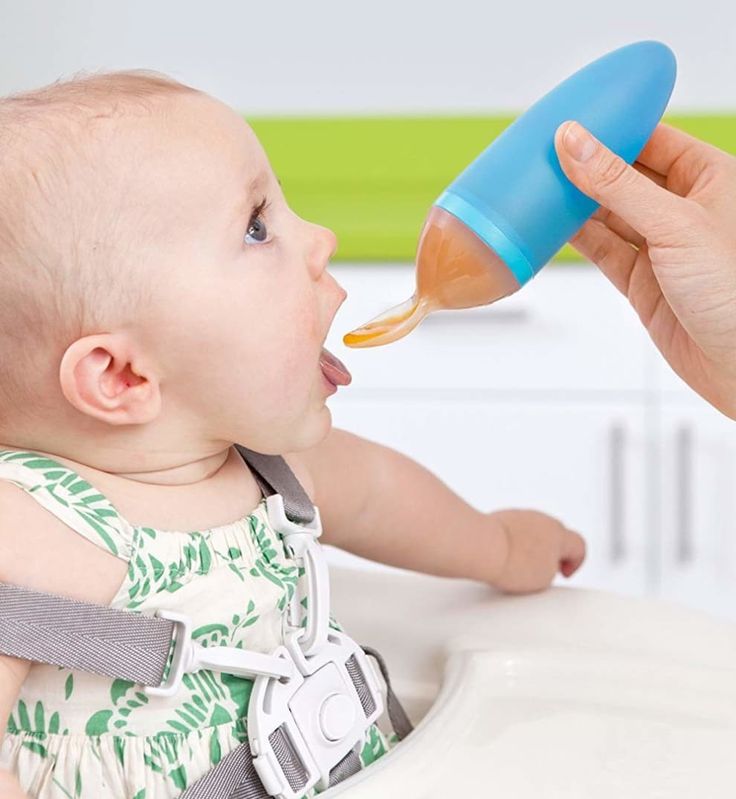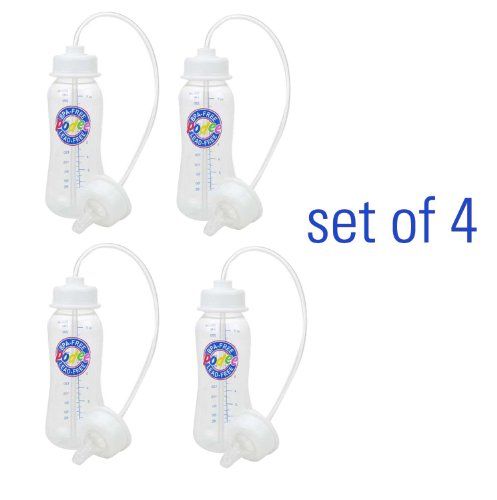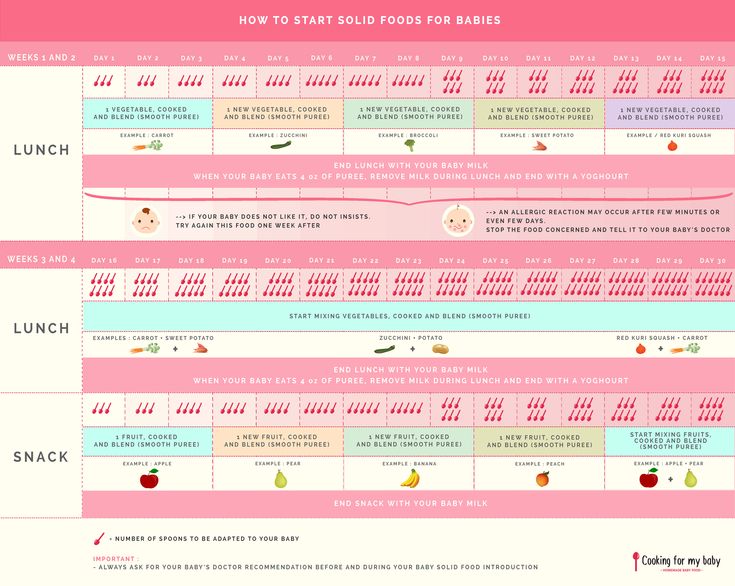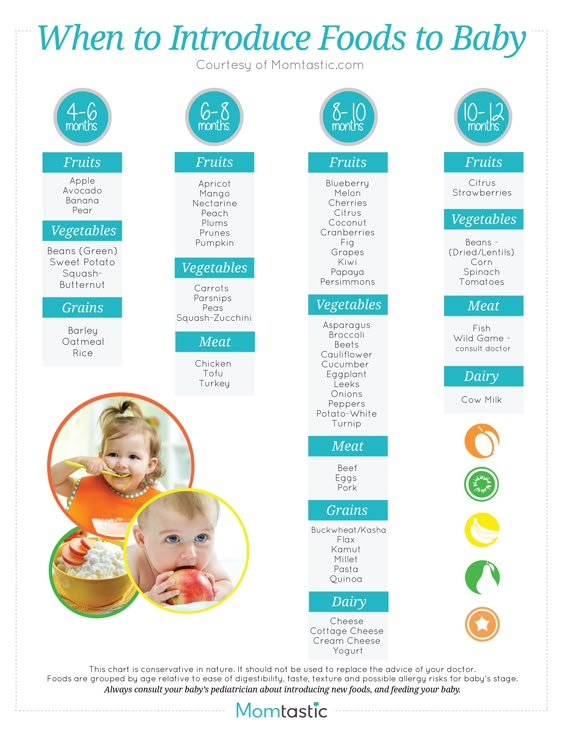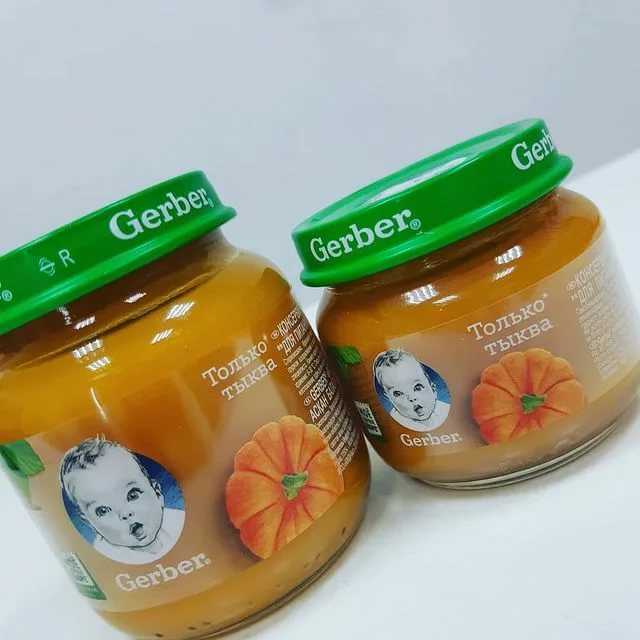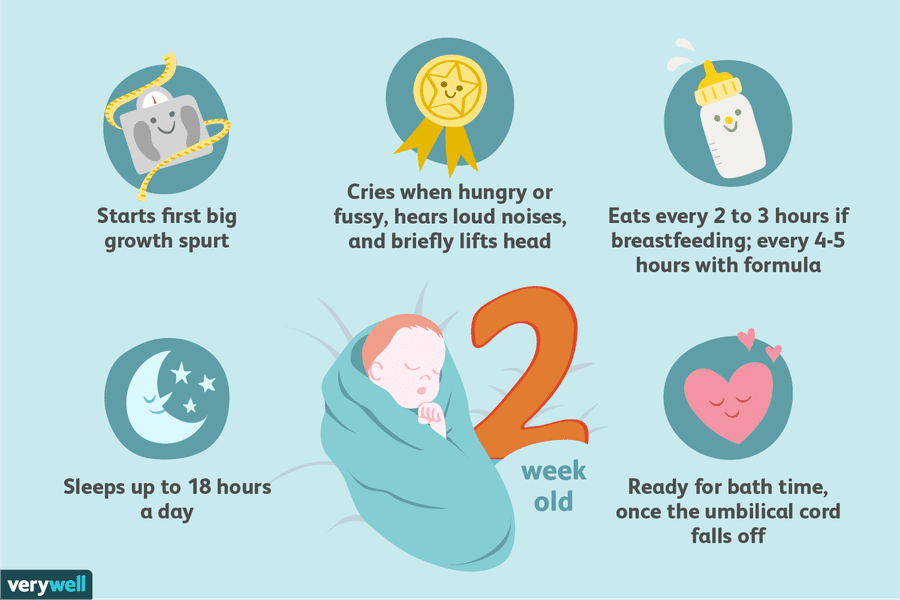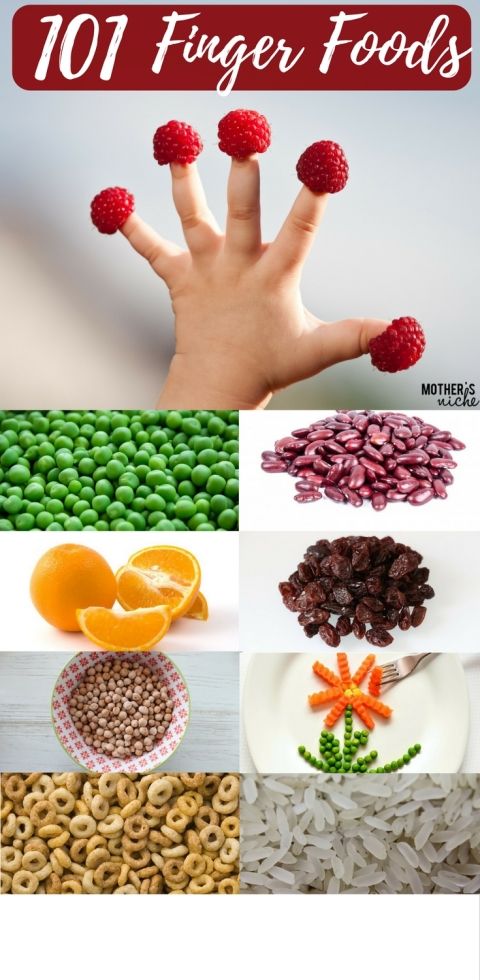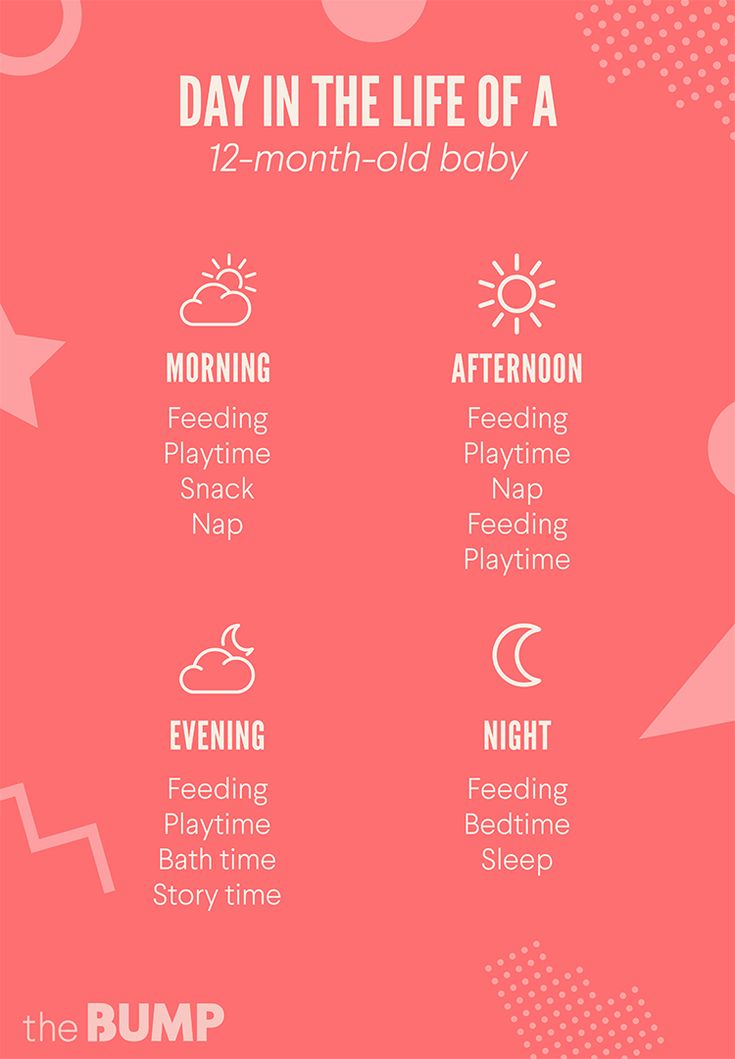My baby spits out food
Weaning Problems & Issues – Guide to Weaning
Challenging times
Common weaning concerns and solutions
Weaning your baby is an exciting time, but it’s not without its challenges. Switching from breast milk or infant formula to solids is a big change. So whether your baby is gagging on lumpy foods or refusing to eat anything new, find out how to solve the most common weaning issues.
Expert advice
Get the support you need, the moment you need it
Join now for free
Why does my baby keep spitting out food?
When your baby is young, they will have a reflex to thrust their tongue out every time the back of their throat is stimulated. This is known as the ‘tongue-thrust reflex’ and it will diminish as your baby gets older. Try not to worry if your baby spits back food – this is a common weaning problem. It may not be because they dislike the food, but because they are still learning to eat. Make a few attempts, but if they are still struggling to swallow the food, it may be because they’re not ready to start weaning, so leave it for a week or two and then try again1.
Why does my baby refuse certain foods?
If your baby pulls a face and refuses a certain food on a first attempt, it's more than likely they are surprised. This is a new experience, after all. Chances are your baby will forget and may respond differently next time they taste the same food. Perseverance is the key to this particular weaning issue. It can take eight to ten attempts for your baby to accept certain foods or tastes, so give them plenty of chances to try again.
If everything else fails, go back to the basics for a few days – vegetables that have a mild flavor, such as parsnips, sweet potato and carrots – or purée fruits to tempt their taste buds.
At around 8–10 months your baby may begin to refuse spoon feeding, but this is an important milestone as they start to assert their independenceWhy doesn’t my baby like finger foods?
Experts advise introducing finger foods from 6 months onwards, when your baby's hand–eye coordination is more developed and they are able to pick up food and put it into their mouth independently.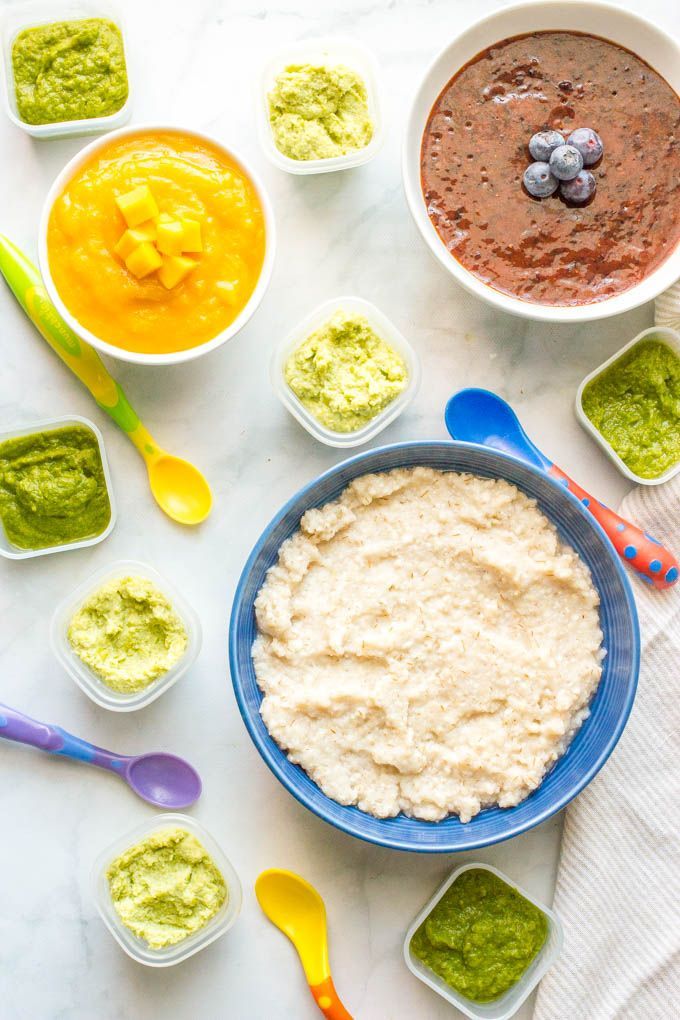
Start with soft finger foods, such as slices of banana or avocado, and gradually introduce firmer textures as your baby seems ready. Pieces should be about the same size as your little finger so that your baby can grasp them well.
Initially, your baby will only eat a small amount of these foods, as they will still be getting most of their nutrition from breast milk or infant formula. This isn’t a problem – just continue offering finger foods as part of the weaning process, and sit together as a family at mealtimes to encourage them. Your baby learns through copying, so if they see you eating finger food, they are likely to follow suit.
Should I worry if my baby gags on solids?
Gagging is a normal reflex that prevents your baby from choking, so if it happens, try not to panic. Check to see you are not putting too much food on their spoon, or if they are putting the spoon too far into their mouth.
Sometimes babies struggle with the transition from smooth purées to lumpier textures.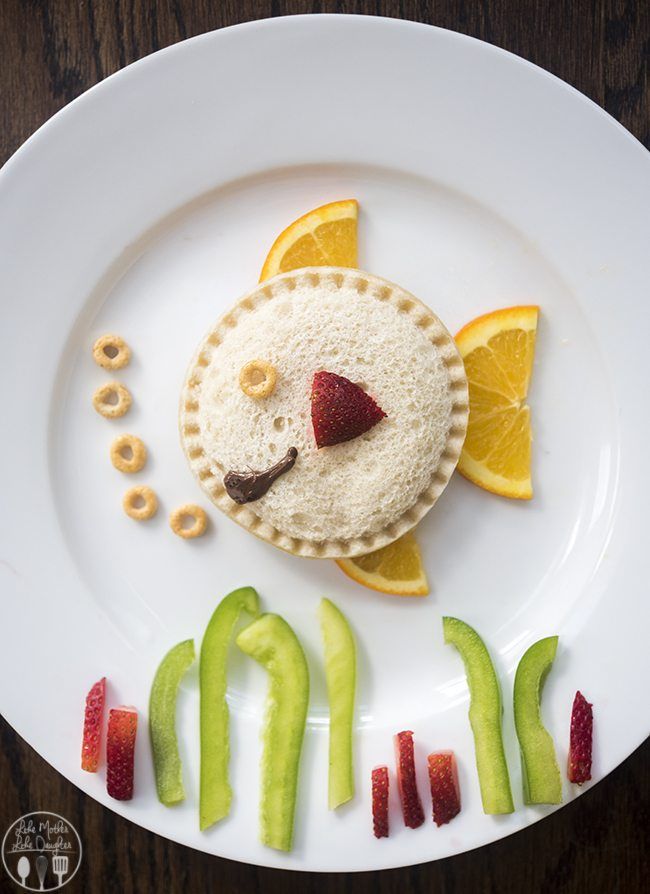 It may take some time for your baby to get used to lumpier foods, so introduce them slowly to help avoid this weaning issue. Move from a smooth purée to mashed foods with small lumps and then on to larger lumps. Experimenting with new and varied textures early on in your baby’s development is less likely to lead to food refusal as weaning progresses.
It may take some time for your baby to get used to lumpier foods, so introduce them slowly to help avoid this weaning issue. Move from a smooth purée to mashed foods with small lumps and then on to larger lumps. Experimenting with new and varied textures early on in your baby’s development is less likely to lead to food refusal as weaning progresses.
If your baby does gag, try not to overreact or lift them out of their highchair. Use lots of reassuring words and comforting body language. Mums often mistake gagging for choking, when in fact the likelihood of choking is very small. If you are concerned, talk to your doctor or healthcare professional, who will tell you what signs to look out for and when to administer first aid.
Eating slowly is a good habit to encourage as it helps your baby enjoy their food and prevents them from overeating.
Why isn’t my baby eating anything?
In the first few weeks of weaning all you can expect is for your baby to take a small amount of food from the tip of a spoon. At this stage, it's more about getting your baby used to the feel of food in their mouth.
At this stage, it's more about getting your baby used to the feel of food in their mouth.
As they grow, your baby’s food intake should increase, but bear in mind a baby’s stomach is much smaller than an adult’s. At 3 months it is approximately 10 times smaller than an adult’s and by 1 year, around 4 times smaller. Their portions should reflect this difference.
Remember, your baby will still be getting most of their nutrients from breast milk or infant formula. As long as they continue growing and putting on weight, there’s no need to worry.
Offer a variety of foods, of different tastes and textures, and avoid showing frustration if your baby refuses foods or only eats small amounts. They will gradually increase their food intake over time. If you are feeling concerned speak to your health visitor for reassurance and advice.
Why is my baby refusing to be spoon-fed?
Between 8 and 10 months, your baby may begin to refuse being fed by a spoon. This is around the age where babies become more aware of themselves.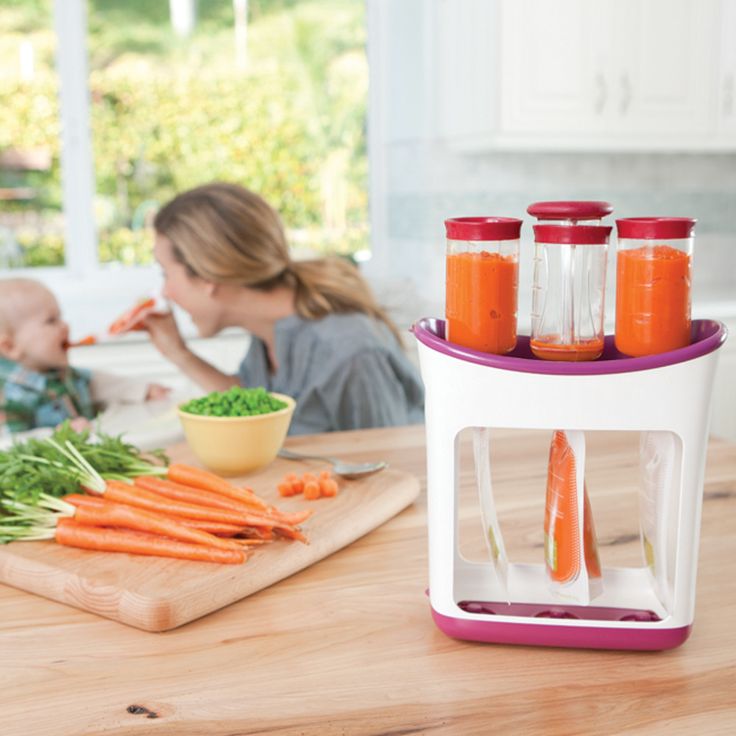 Asserting their independence by refusing a spoon is, in fact, another milestone.
Asserting their independence by refusing a spoon is, in fact, another milestone.
To make mealtimes more relaxed, try letting your baby hold another spoon while you feed them. You could also try scooping food onto their spoon and encouraging them to feed themselves. If that doesn’t work, try giving your baby soft finger food such as steamed vegetables, cooked meats or cheese.
Babies may also refuse to be spoon-fed if they are feeling unwell, are teething or tired. If you have any concerns talk to your doctor or health visitor.
View references
1. Nicklaus S. Children’s acceptance of new foods at weaning. Role of practices of weaning and of food sensory properties. Appetite 2011;57(3):812-5.
Last reviewed: 21st August 2014
Baby Spitting Food Out? - Solid Starts
Why is my baby spitting food out?Watching your baby take bites of food only to see it fall back out of their mouth can be frustrating and nerve-wracking! Is baby getting enough to eat? Are they unable to swallow? Are they a picky eater?
Well, we have good news: For the majority of typically developing babies and toddlers, spitting is not only totally normal—but a necessary part of learning to eat.![]() And for babies, it rarely means they didn’t like the food.
And for babies, it rarely means they didn’t like the food.
Just getting started on solids? See our guides and videos on how to start solids safely and prevent picky eating. Get access to all guides + videos in one click by purchasing our Starting Solids bundle.
Callie, 9 months, eats fish fingers and spits food out as she goes.Callie at 12 months, spitting orange segments. Toddlers will spit out foods with tough skins or membranes often as they are tough to chew fully.It’s more than simply chewing & swallowingWhen it comes to learning to chew and swallow, babies have a TON of skills to practice and acquire.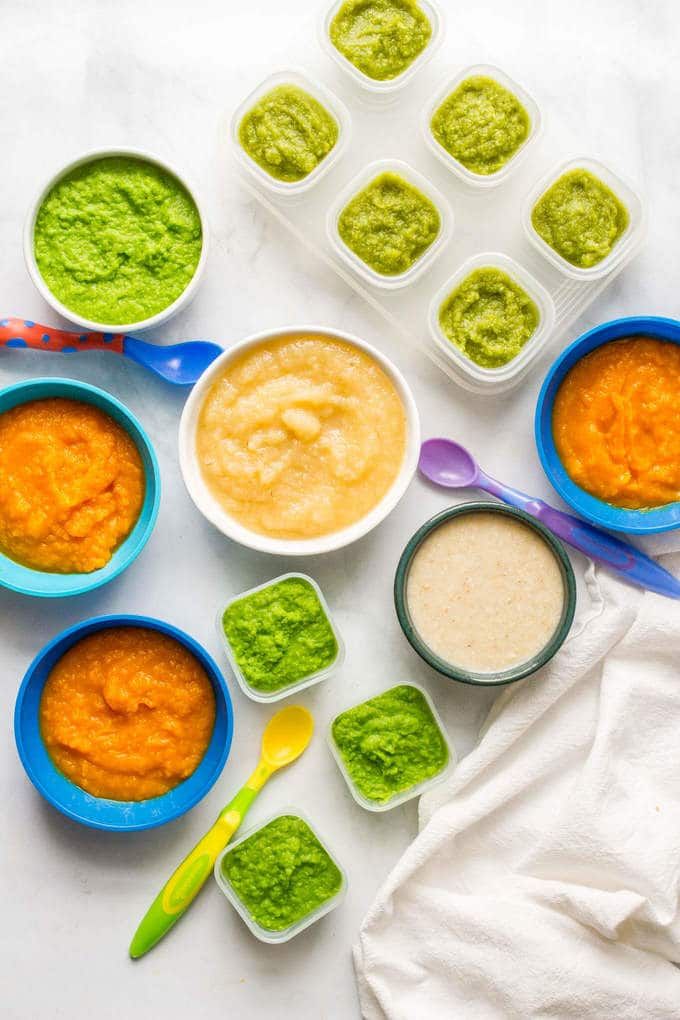 First, the baby needs to identify the food on their plate. Next, they visually engage with the food. Then they need to know how to reach for and grasp the food. And lastly, they need the hand-eye coordination and motor planning skills to get the food accurately to their mouth (or at least some of it!). The magic happens once the food is in their mouth.
First, the baby needs to identify the food on their plate. Next, they visually engage with the food. Then they need to know how to reach for and grasp the food. And lastly, they need the hand-eye coordination and motor planning skills to get the food accurately to their mouth (or at least some of it!). The magic happens once the food is in their mouth.
Once your baby has successfully brought food to their mouth there’s quite a bit of action that needs to take place before they can swallow it. Babies are born with oral reflexes to learn to chew and swallow, but mature chewing requires a lot of motor skills, including moving the tongue, keeping the food on the side of the mouth for chewing, moving the jaw up and down to break down the food, and then finally, transitioning the food back to the center of the tongue and backward to swallow. Which is a lot of work!
Beyond the oral motor skills required to chew and swallow food, mature chewing also requires sensory awareness. Baby needs to learn where the food is in their mouth, how the tongue moves the food, and where do they want the food to go.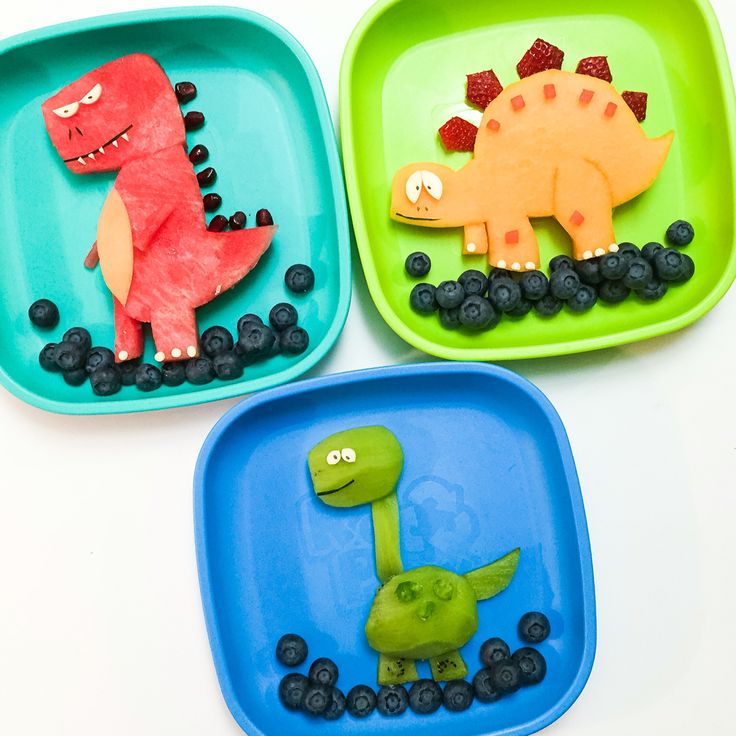
Infants learn through connecting movement with touch and sight. Sometimes babies need visual feedback to better learn how to move food and where it is in their mouth, plus where it’s going. This is what’s happening when babies spit food!
Infants and young toddlers (before 18 months) will attempt to chew food and spit out partially-chewed food. This occurs for two reasons:
- Visual Inspecting: The child needs to SEE if the food is chewed thoroughly before swallowing.
- Motor Planning Mistake: The child simply hasn’t learned the boundaries of their mouth where the food moves out of the mouth rather than sideways or backward for swallowing.
By visually seeing and touching the food they’ve spit out, babies are learning about chewing. Often, kiddos will spit out the food, visually inspect it, and put it right back in their mouths! Try to let them do this and not to show any disgust—it’s just one way to solidify chewing skills!
What to do when your baby spits out foodNow that you know why your baby or toddler may be spitting out food, let’s chat about what to do.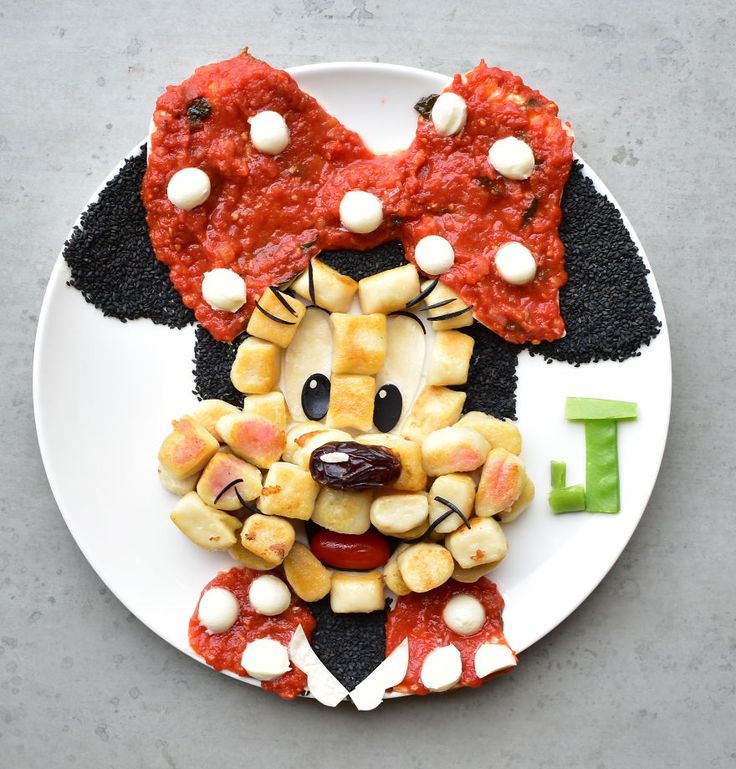 The easiest answer? Let it be! Try not to intervene or show disapproval. Your child is doing exactly what they should be to learn how to chew thoroughly.
The easiest answer? Let it be! Try not to intervene or show disapproval. Your child is doing exactly what they should be to learn how to chew thoroughly.
In fact, take advantage of your baby spitting out food. Talk to them about what they are doing. For example: “Wow! Looks like you have a big bite in your mouth. Was it too much? Looks like that big bite was too much for your mouth, and you had to spit it out.” Or, “Wow! You are doing such a good job learning to chew that! I think it fell out of your mouth. Let’s look and see.”
It may seem silly, but the more babies and children are repetitively exposed to language explaining their actions, the more they grow and learn.
If you’re taking babe somewhere where spitting would be frowned upon (like your mom’s house or a dinner party), try not to fret. Here are some tips to help head spitting off at the pass when you need to:
- Pace your child with small amounts of food within their reach at a time.
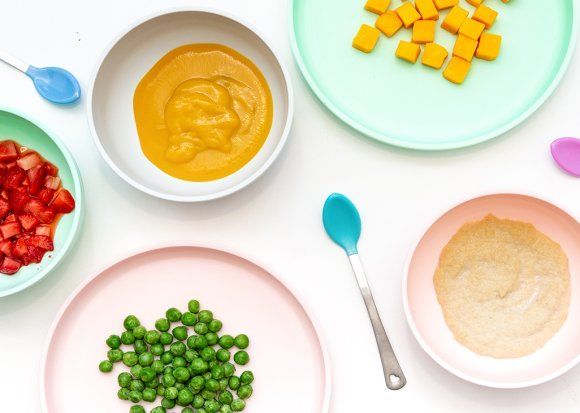
- Make the food easy to handle and easy to chew.
- Be prepared with a response to your family or anyone who comments on it. If Uncle Ted makes a remark about it, you can always just say that your baby is “still learning to chew and interestingly, experts say that babies actually need to learn how to spit before they develop mature swallowing skills.” Or, a simple, “Back off my baby!” can work too (wink, wink).
If you find that an older baby (closer to one year of age) who has had ample practice with finger foods continues to spit a lot, there are three things you can do:
- Make sure your child shows up to the table hungry. You want baby to have the hunger drive to swallow the things they put in their mouth. Consider spacing out bottle/breastfeeds and table foods 1.5 to 2 hours apart.
- Build improved tongue lateralization (the side-to-side motion of the tongue) needed to move food to the side of the mouth.
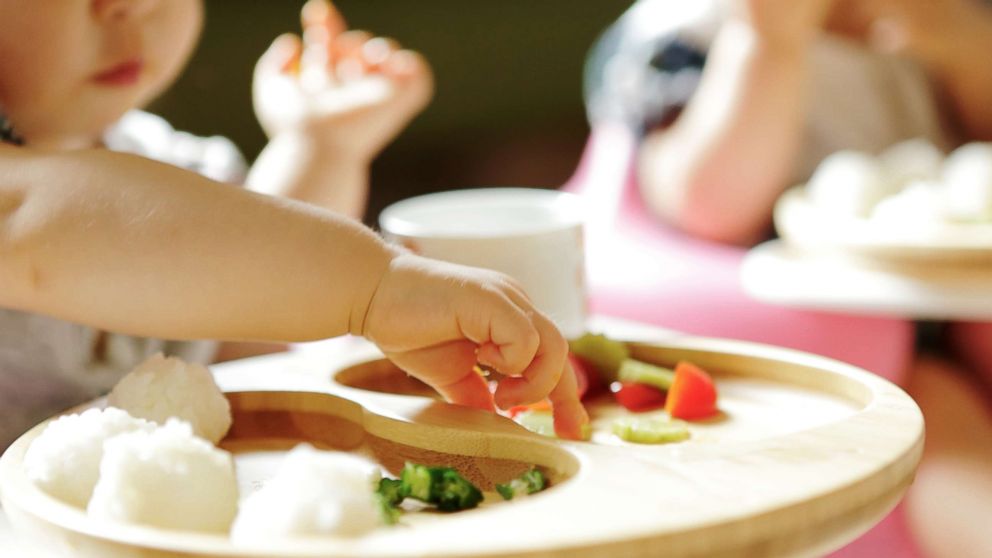 Provide opportunities for exploration of long, resistive sticks (spareribs with most of the meat cut off, celery sticks, etc.) of food dipped in a preferred sauce for the child to gnaw on. This encourages the tongue to move side to side while also biting on something.
Provide opportunities for exploration of long, resistive sticks (spareribs with most of the meat cut off, celery sticks, etc.) of food dipped in a preferred sauce for the child to gnaw on. This encourages the tongue to move side to side while also biting on something. - Model, model model! Babies learn by watching you! Model with very exaggerated tongue movement (placing the food in your mouth and dramatically moving it to your back teeth to chew). Then tell your kiddo it’s going “ALL the way to my belly!” (and point to your stomach.) Open your mouth and show that the food is gone.
Why is my child suddenly spitting food when they never did before?
One common culprit is teething, especially in young toddlers. The first set of molars usually come in between 12-15 months and can lend to some erratic eating patterns. Some other reasons include illness, being too full, being too hungry or too tired. Spitting is not a sign that your child doesn’t like the food–it is simply evidence that they need more practice doing the more difficult motor pattern of moving the food to the side for chewing, or that they are possibly experiencing discomfort inside the mouth if teething is a factor.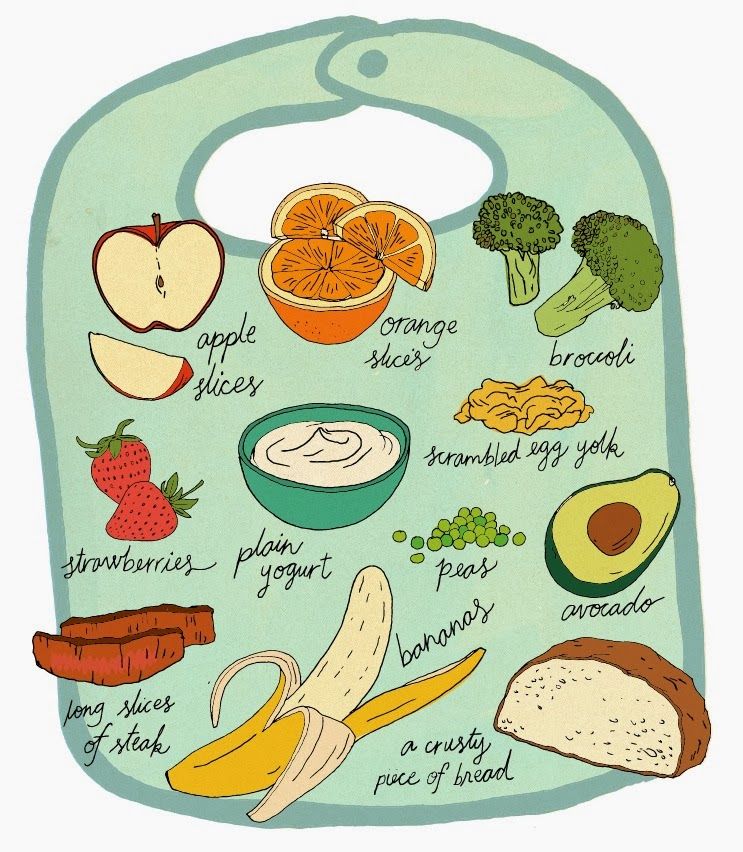
Some strategies/resources you can use to help your babe participate a bit more in the meal are as follows:
- Consider implementing a feeding schedule if you aren’t already on one. A full baby or toddler has less motivation to swallow food to fill the belly.
- If you suspect teething, you might consider offering cold, soft foods such as refrigerated cucumber or mango pit, yogurt, hummus, mashed beans, etc as part of the meal. Offering a cold teether a few minutes before the meal can help as well until the pain subsides.
- Offer teethers or long, resistive pieces of food to continue to build side to side tongue movement—the building block of chewing. (Read more here: How babies learn to chew)
Spitting is a normal and necessary part of learning to eat—and it will go on for quite some time! The best way to help your baby or toddler learn is through constant, repetitive practice and to give them the freedom to explore and visually inspect food (including partially-chewed food!).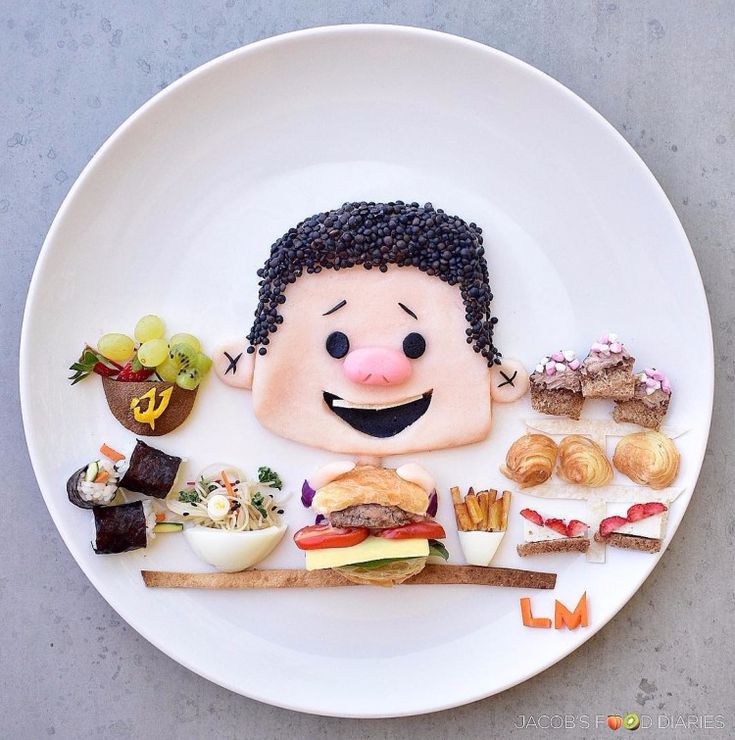 Try not to react with disgust or disapproval and instead, treat each spit as an opportunity to engage with your child and verbally discuss what happened.
Try not to react with disgust or disapproval and instead, treat each spit as an opportunity to engage with your child and verbally discuss what happened.
Note: If your child is putting too much food in their mouth and not understanding how to spit, read up on how to coach them to spit or how to handle food pocketing or shoveling.
Spits out food
- Forum
- Archive
- Child psychology and development
8 month old baby. While eating, sometimes he begins to make lips "prr" (like boys carry cars), food flies in all directions. Is it a certain stage of development or something psychological?
Not hungry. I stopped feeding when the baby started to do so.
Does sometimes at the very beginning of feeding.
Maybe the feeding times are wrong or the baby doesn't like the food.
stop feeding a couple of times at this point and it will stop doing that.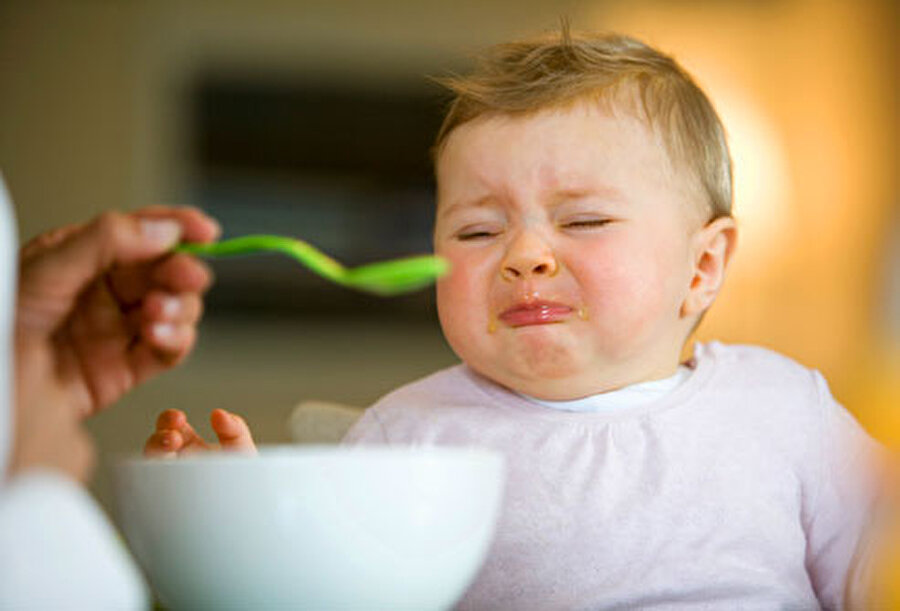 Just don't get angry, just calmly say that they don't play with food
Just don't get angry, just calmly say that they don't play with food
This is the beginning for you, and he may be full from the last time. At this age, I already allowed the child to skip feedings when he clearly had no appetite. Nothing terrible happened.
And we used to do that at your age - getting hit on the lips by dad, now we're a year and a month old, don't do that anymore.
Cool advice, what do you and your husband do for the things you don't like? is he with you?
What to do, give advice. Wait it out? don't give food?
Mine just does it, without food. I would definitely fall behind with food, well, obviously he doesn’t want to eat if he spits like that)
No, he really dabbled. He spat out the first spoon like that. And we love to eat, even when the cold was with a temperature, he didn’t refuse to eat. When he spits out if he doesn’t like this one thing, and when he does prrr on purpose several times in a row and everything and everything around is in porridge, plus he was told it’s already impossible several times , and he continues and laughs at the same time - that's what he got for it.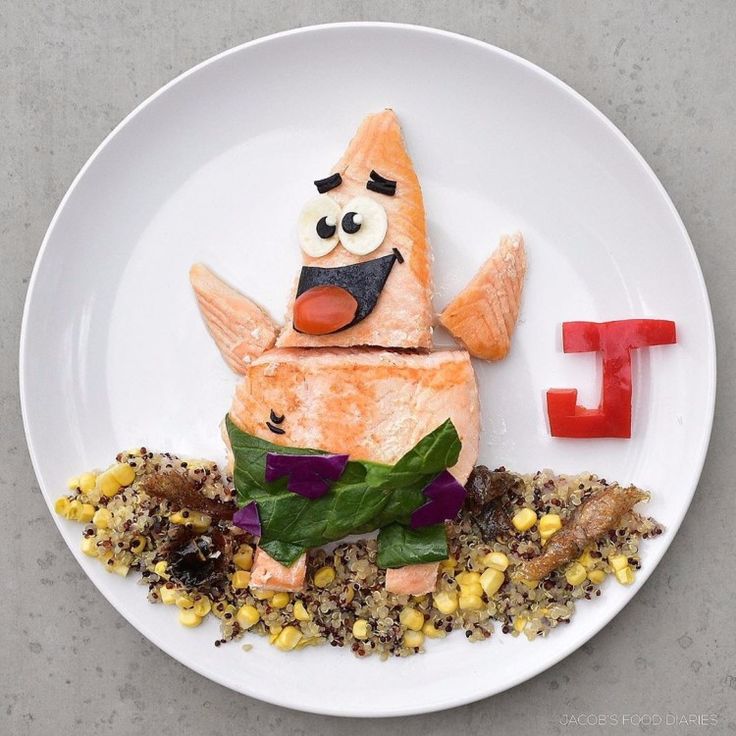 (He got it on his lips with a plastic children's spoon - he was offended and sobbed.) We immediately taught that it was impossible to indulge at the table.
(He got it on his lips with a plastic children's spoon - he was offended and sobbed.) We immediately taught that it was impossible to indulge at the table.
And he didn't get it right away either. It's hard to piss off our dad. But now when he does prrrr, I say it’s impossible - he stops.
If my husband did something to a child, I would immediately do the same to him. Children must not be touched.
Those who beat (spank well) use any physical impact, sign that they are powerless in verbal impact, and simply cannot explain in words. That is, you yourself are a fool, but you spank a child.
I also did this from 7 months to 11 for sure. It’s cool, it was funny to me, I didn’t know that this was a problem, and besides, you can get it on the lips
I don't think so. The child must know what is possible and what is not. And, yes, with a one-year-old child, we are powerless in verbal influence, because. He is still small!!! Even in the Bible it is written that the parent is obliged to discipline the children, and if not, then the child then winds ropes from the parents.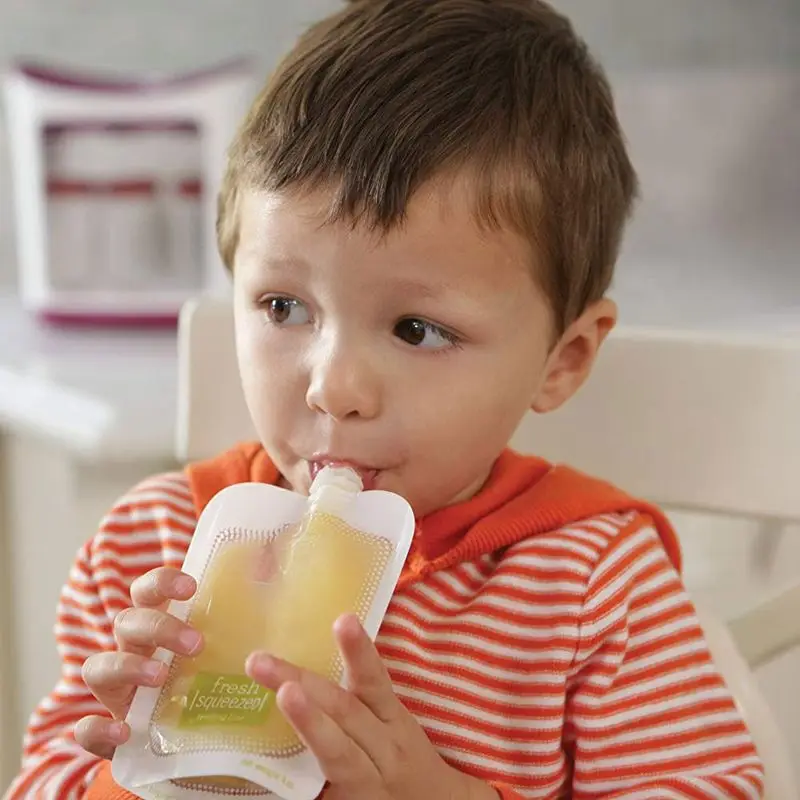
For us, the fact that he was spitting became a problem - he understands "it's impossible", but he does what he wants anyway, so he gets it. I am for punishment in the case (after verbal influence) and for violent coercion, if necessary. (for example, to drink medicine, but he, of course, does not want to)
Situations are different. Ours did this on purpose and it was impossible to feed him. It has become a problem for us. Enough words now.
At other times, it's fun for me too, but while eating, the flight of porridge somehow doesn't please me.
Pevroe, you never know where it is written, do you keep fasts? do you have sex on permitted days? and so on? Or read what is convenient and appropriate?
second, to discipline does not mean to apply physical punishment, if you do, then you simply cannot do it differently, read weak and stupid.
There is also such a concept as DO NOT and DO NOT, do you distinguish between them? And how much should be impossible at the age of one?
And what is this strange fear that ropes will be twisted out of you? Don't screw up if you respect the boundaries..jpg) And do not violate)
And do not violate)
Same thing) We call it a tractor starts) funny and funny)
So maybe you didn’t want to eat? Go, you decide for him when he eats and how much?
Imagine, yes, while I decide when to eat. It is strange that a child does not make a decision on his own a year ... I feed according to the regimen 4 times a day. Therefore, he wants to eat for every feeding, since we only have fruits or fresh vegetables for snacks. If you feed him more often, he will grow a piglet with me, my son loves to eat very much. I don't have a little one. I wrote above that when we get sick, we eat as usual. Yesterday he ate his porridge, after 5 minutes I had to share a cutlet with him, and after another 5 minutes he pulled a piece of bread from my grandmother’s table and I had to divide a piece in half.
And I'm not cool or funny when I'm covered in porridge. And the author asked how to deal with the problem. I told how we are. Yes, I did. Yes, no more spitting. Our problem is solved.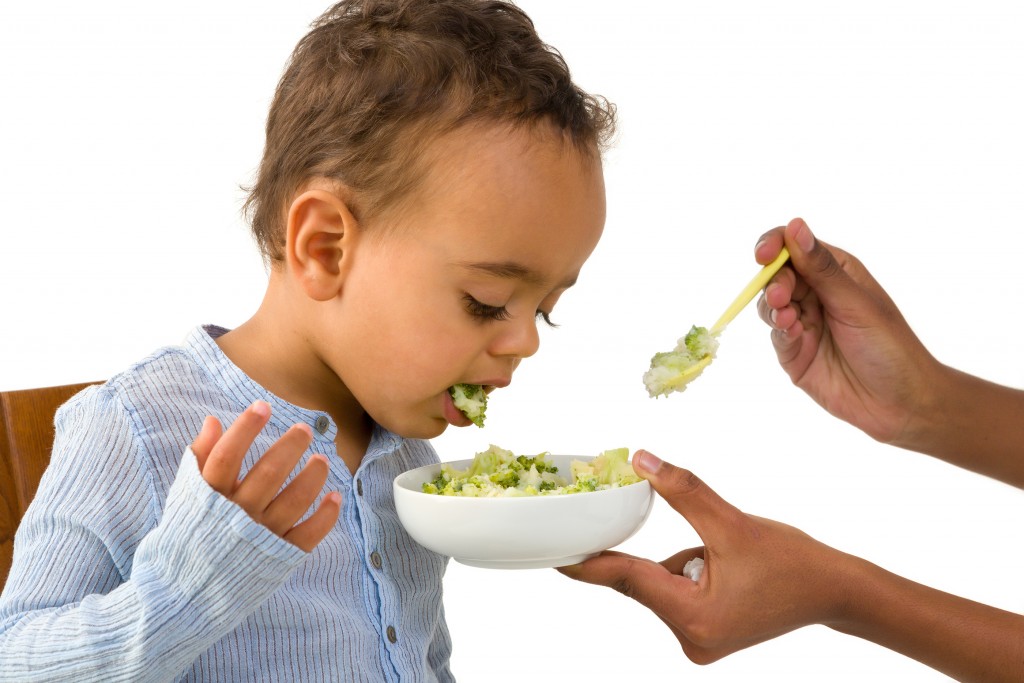
Well, the first couple of times, ask not to do this, the third time, strictly demand, the fourth time, stop eating and drop out of the chair.
As far as I remember food is a physiological need and no one except the individual can know for him. And to accustom Mona to everything aha. The current is still incomprehensible, it seems that he ate porridge and seemed to spit, so did he need porridge then?
Will you solve problems like that? Believe me, porridge is not a small thing... nothing. we will solve problems with a belt, if we don’t understand otherwise. We were accustomed to the regime from birth, we ate the mixture (oh horror), it is often impossible to give it, the mixture was replaced with food, the regime remained. The individual is only a year old, we decide for him. And if the individual is in the socket will climb and from 3 times will not understand that it is impossible with words, what are you going to do?0011
Kanesh I'll cut it so that it will fly half the room cooler than from the current, how else?
Young man, everything is clear with you. Play ping-pong, Gena)
Play ping-pong, Gena)
Have you read somewhere about the "psychological" spitting of an 8-month-old baby, or did you come up with it yourself? Just wondering. Is there such a "version" somewhere?
If I had known, I wouldn't have asked questions.
So I ask - where did you get this from? I have already gone through the "teeth !!!!!" stage three times, and the 4th time will be the same, it's like giving a drink. Whims...whims...whims. But then everything goes back to normal. But to "psychologically"? Hear it for the first time.
The child is actively exploring his body and everything around him at the same time. Now he is spitting, then he will put his fingers into the porridge, therefore throwing the same porridge and so on. This is the normal development of a small child. At this moment, try to say briefly “no” in a serious voice, well, postpone feeding for 10 minutes, after this time sit down to feed again.
I do this from time to time, I don’t even bother, I laugh with him and continue to eat, I have twins, if you still pay attention to this . ..
..
Oh, relax. There, the girl has a clinical case. From the moment they appeared, they didn’t specially accustom him to hands, he fell asleep (and falls asleep, probably) on his own with a pacifier. So it gets on the lips, and not only, probably ... But with my mother it's still better than without her. So it's not all bad. Although my mother remembered about the belt already a year ago. What happens at five...
Well, I don't know, it was really funny to me. Porridge - what is it, but blueberries.0011
If an individual climbs into the socket, then there must be plugs. The rest - no comments, horror
Yes, I haven’t seen such people for a long time) I lost the habit, I wanted to make sure that everything was not so rotten.
I read a topic about bedtime... What scares me the most is that the girl has no doubts about her correct approach to upbringing, and proudly recommends it.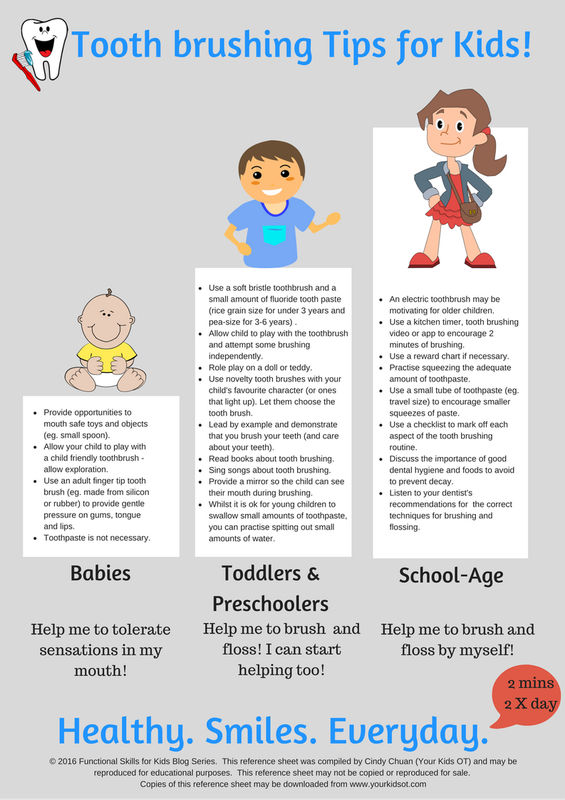 .. The problem is solved - the child falls asleep on his own, not like yours; the problem is solved - the child does not spit, not like yours ... etc. I don’t even comment on her posts anymore, so as not to injure my delicate psyche)))
.. The problem is solved - the child falls asleep on his own, not like yours; the problem is solved - the child does not spit, not like yours ... etc. I don’t even comment on her posts anymore, so as not to injure my delicate psyche)))
Spitting - that's what), here we had one time EVERY feeding was a game "knock down a spoon", and she pearled the child more than food. That did not cancel spitting. Have experienced nothing. Now more than two - does not spit, does not knock down spoons. They explained that it was not necessary to do this, he became older - they were expelled from the table. It was funny too, but not every time for several months)), sometimes it was tiring
Open theme in windows
Child spits out and throws food.
The child eats carelessly at the table: he spits out and scatters food. What to do in this case?
As soon as he starts eating, my baby throws the plate on the floor or turns the cup upside down.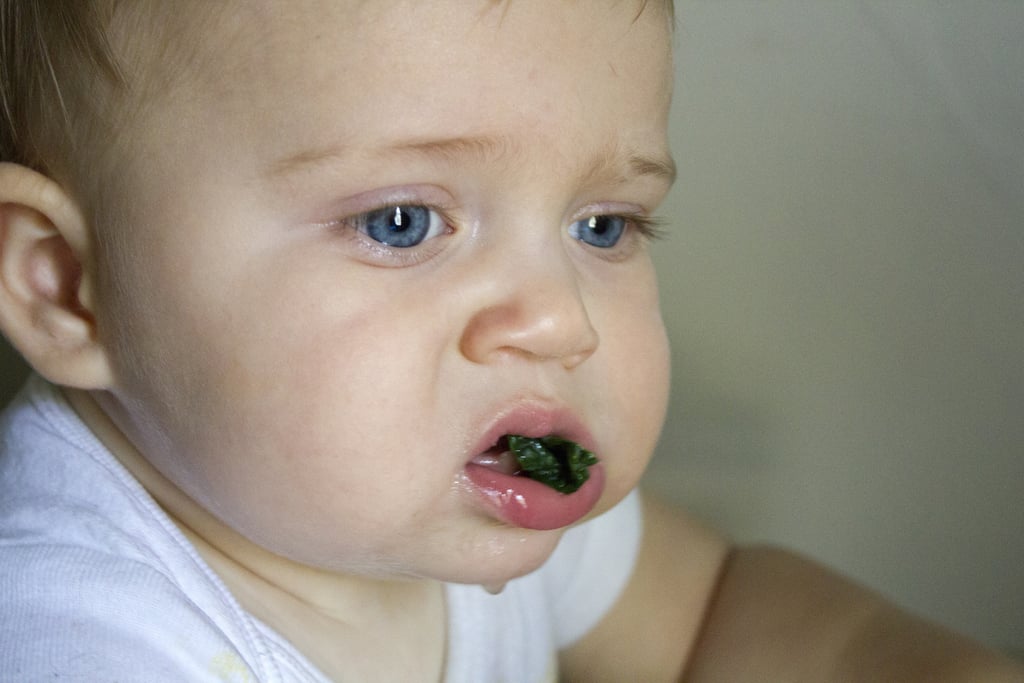 My nerves can't take it anymore.
My nerves can't take it anymore.
The only reliable way to stop the mess and scattering of food at the table is to completely deprive the baby of food and drink. Since this is not possible, try changing its behavior.
- Serving size. Many children tend to waste food if there is a lot on the plate. Put in front of the child a portion designed for only two or three sips. When the baby copes with it, lay out the next portion.
- Distract or entertain your child. Trying to eat from a spoon on your own can get so addicting for your child that he doesn't want to turn his plate over or throw pieces to the dog.
- Attach the plate. Use a baby plate that attaches to the table with a suction cup. Then the child will not be able to overturn it.
- Do not be stingy with praise. When your baby behaves well at the table, praise him. If pranks have led to the fact that the dish is almost torn to pieces, finish feeding.

Of course, you will not be able to permanently prevent the antics of your little robber while eating, but you can somewhat reduce their consequences. Spread newspapers or oilcloth under the baby's chair, put him away from walls and hard-to-clean furniture. To prevent your child from getting dirty, roll up his sleeves and tie a bib or apron. If the baby starts to show displeasure, dress him in something suitable for eating, and if it's warm, don't dress him at all. Follow our advice and, perhaps, the child will no longer want to throw porridge at you.
My baby has a habit of spitting out food as soon as I put it in his mouth. He seems to enjoy the sounds it makes. Naturally, this annoys me, not to mention the fact that the food is flying right at me. I tried to be very strict with him, but he laughs, and I involuntarily start to smile too.
Nothing makes a young actor rave like the response of the audience.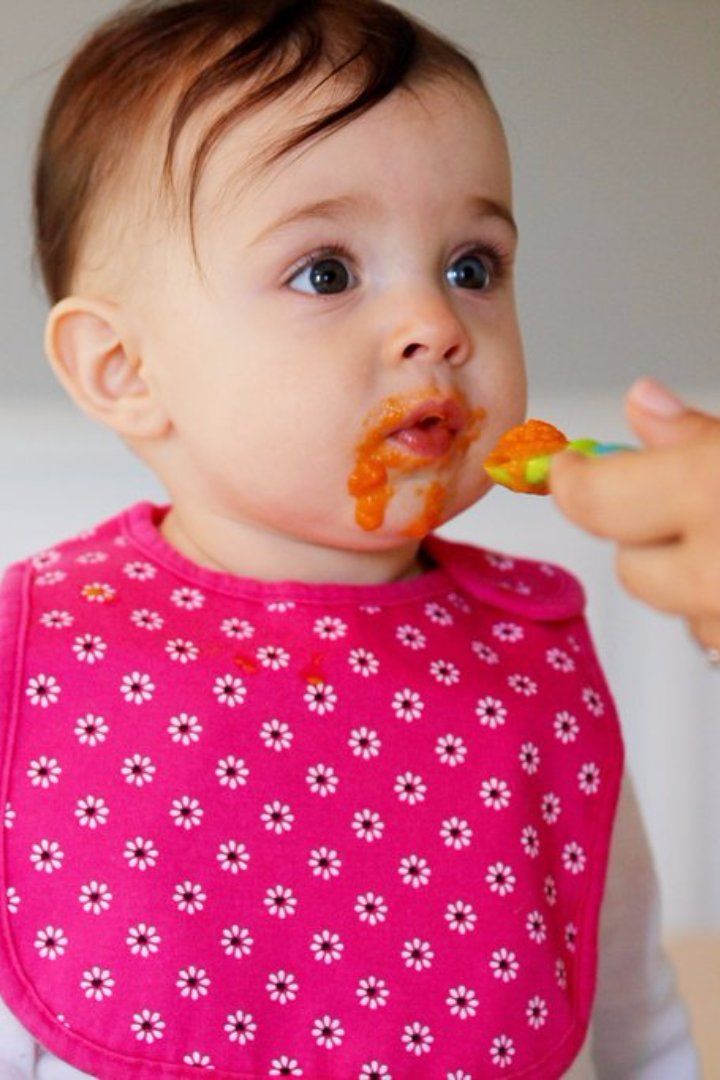 And nothing will impress more than oatmeal, carrots or yogurt flying around the room. Six-seven-month-old babies like to make "pf-f-f" sounds with their lips. Most likely, the bad habit began to be developed around this age, at the same time he discovered how funny it turns out if these sounds are combined with food. Perhaps this habit persists only because an adult reacts to such behavior. Any reaction - from an angry "no" to a half smile - convinces the baby that his old trick still works, and although in this case it is not at all funny, he will continue to spit food until you stop reacting. To end the show drastically, try the following.
And nothing will impress more than oatmeal, carrots or yogurt flying around the room. Six-seven-month-old babies like to make "pf-f-f" sounds with their lips. Most likely, the bad habit began to be developed around this age, at the same time he discovered how funny it turns out if these sounds are combined with food. Perhaps this habit persists only because an adult reacts to such behavior. Any reaction - from an angry "no" to a half smile - convinces the baby that his old trick still works, and although in this case it is not at all funny, he will continue to spit food until you stop reacting. To end the show drastically, try the following.
Why does the child spit food?
- Change food. Avoid sticky foods such as pureed fruits and vegetables, cereals, yogurt. Replace them with banana slices, slices of well-cooked carrots or potatoes, cookies, bread, and thinly sliced cheese. Along with the disappearance of the source of a wonderful gurgling sound, the desire to spit may also disappear.
 If the kid is offended that he was deprived of his favorite dish, explain the reason. Tell him he'll get it if he doesn't spit.
If the kid is offended that he was deprived of his favorite dish, explain the reason. Tell him he'll get it if he doesn't spit. - Stage for one actor. The increased responsibility and satisfaction that he eats himself (if the child does not already) can make your baby lose interest in old tricks. Of course, this will take longer and cause more problems than eating with the help of adults. However, the child will still soon have to start eating on his own. Just eliminate everything from your diet that you can choke on. No sausages, nuts, popcorn, etc.
- Performing in front of an empty hall. If there is no audience, your child will not enjoy the show much and will most likely not continue it. Put a plate in front of him and do something in the same room. Hear a spit - do not turn around, do not even see an eyebrow and in any case do not smile.
- Lower the curtain. The child must know that if he spit it will end badly.
